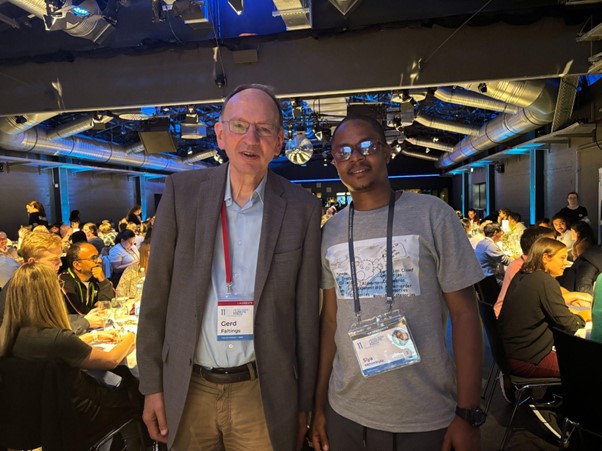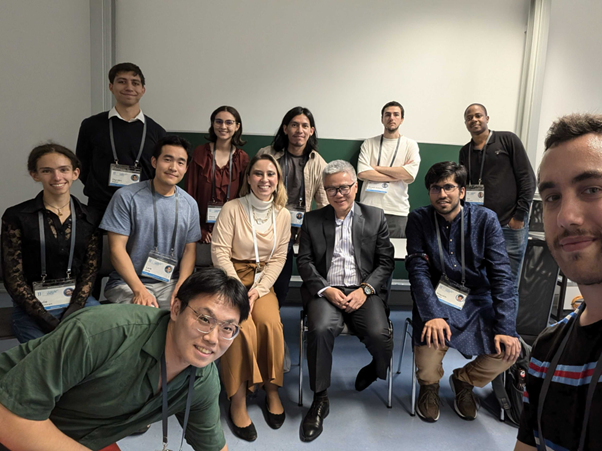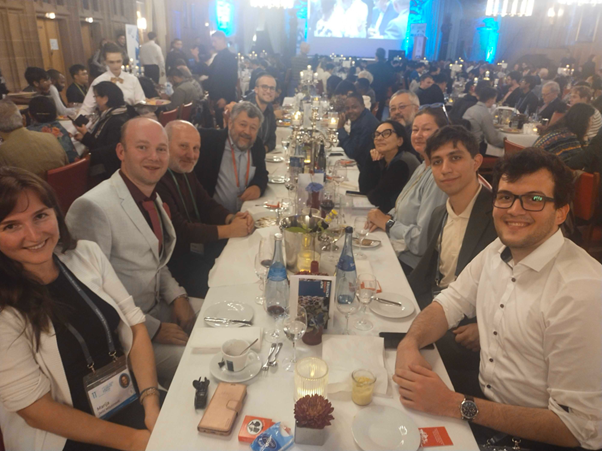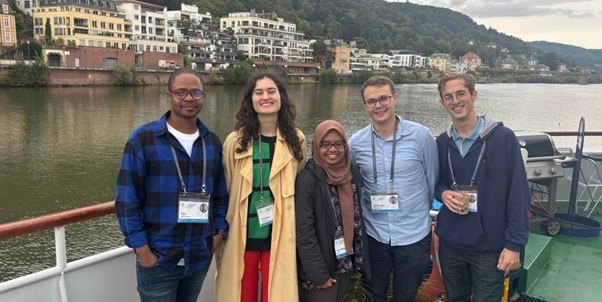From 22 to 27 September 2024, Heidelberg once again opened its doors to some of the world’s most brilliant minds for the 11th Heidelberg Laureate Forum (HLF), a distinguished event that brings together young researchers and the most esteemed laureates in mathematics and computer science. The Forum, known for gathering recipients of prestigious awards like the Abel Prize, ACM A.M. Turing Award, and the Fields Medal, provided a platform for 200 select young researchers from around the globe to engage directly with pioneers in their fields.
Mr Siyabonga Mthimkulu, a PhD student from AIMS/UWC, was among the attendees. He described the event as transformative, offering unparalleled access to luminaries and their groundbreaking work. Highlights included the “Lightning Talks,” where laureates presented on critical unresolved issues within their specialties. Notably, Efim Zelmanov, a 1994 Fields Medalist, captivated attendees with insights into the profound mysteries of Algebra.
The Forum also featured innovative sessions like “Speed Networking,” where participants exchanged ideas through brief, impactful discussions, fostering both academic and personal connections. A cultural outing through historic Heidelberg and a memorable welcome dinner at Halle02 added to the richness of the experience, allowing Siyabonga to interact personally with giants in the field, such as Gerd Faltings. This interaction was particularly meaningful as Siyabonga sought answers to long-held questions about the personal impact of achieving such high academic honours.



Additional sessions that stood out included the “Master Class” lectures, with topics like Moduli Spaces presented by Gerd Faltings himself, inspired by the late Maryam Mirzakhani—the first woman to win the Fields Medal. The relaxed “small group interactions” also enabled profound discussions with laureates like Bao Chao Ngo, further enriching the experience with their personal and professional insights.
The event concluded with a panel on science communication and targeted “scientific interaction” sessions, aimed at helping young researchers navigate the transition between academia and industry. The closing ceremonies at the historic Heidelberg Castle provided a fitting end to a week of intellectual stimulation and networking.
For Siyabonga the Forum was not just an academic conference but a pivotal, life-changing experience. “It was an honour to stand among the greats of mathematics and computer science, gaining not just knowledge but also the inspiration to pursue one’s passions relentlessly.”

